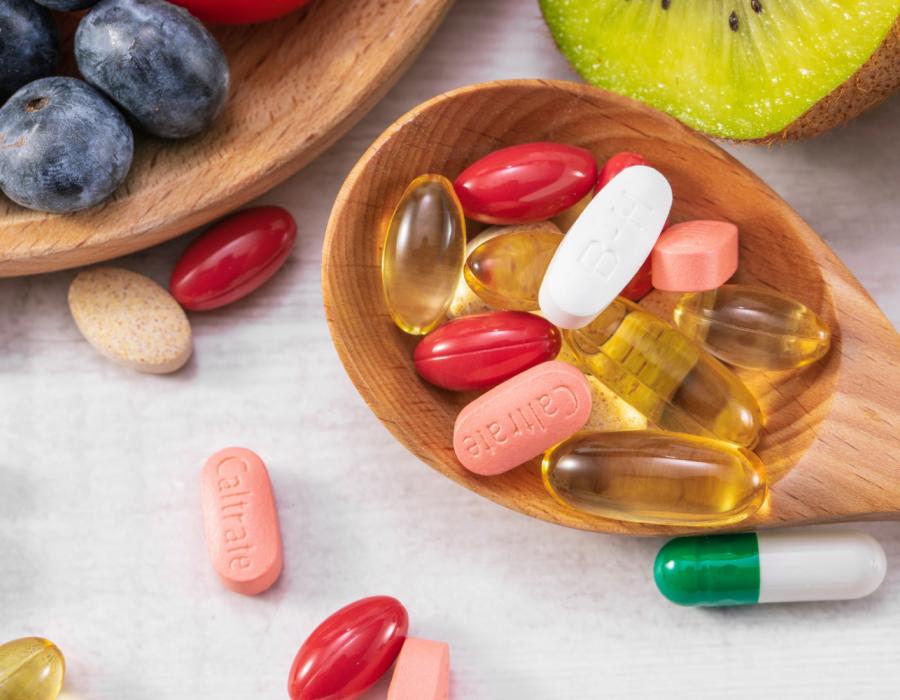
The Best Supplements to Support Your GLP‑1 Journey
Are you using a GLP-1 medication like semaglutide or tirzepatide for weight loss or metabolic health? These medications are powerful tools, but their appetite-suppressing effects can make it harder to meet your nutritional needs. The right supplements can help you stay energised, preserve muscle, and feel your best throughout your GLP-1 journey.
In this guide, you’ll find the most important supplements for GLP-1 users, all backed by research and clinical experience, including practical dosage guidance for each one.
1. Protein Supplements
GLP-1 medications often reduce appetite, making it tough to get enough protein from food alone. Protein is essential for maintaining muscle mass and keeping your metabolism healthy during weight loss.
Research says that around 86% of GLP-1 users don’t meet their protein needs.
Top choices:
Whey protein isolate: Fast-absorbing and rich in leucine for muscle support.
Plant-based blends: Pea, rice, or hemp protein are great for vegans.
How much should you take?
Aim for 20–30g per meal, or 60–120g per day depending on your weight and activity level.
Consult your dietitian for a personalised target.
2. Magnesium
Constipation is a common side effect of GLP-1 medications. Magnesium helps keep you regular and supports muscle and nerve function.
Best forms:
Magnesium glycinate: Gentle on the stomach, calming for the evening.
Magnesium citrate: Especially effective for constipation.
How much should you take?
Typical dose: 200–400 mg daily.
Start with the lowest dose to assess tolerance.
Always consult your doctor, especially if you have kidney issues.
3. Vitamin B12
Reduced appetite or lower intake of animal products can lead to vitamin B12 deficiency, which affects your energy, nerves, and red blood cells.
Watch for symptoms like:
Fatigue
Tingling or numbness
Brain fog
How much should you take?
Most adults need 2.4 mcg daily.
Supplements often provide 500–1,000 mcg for deficiency or absorption issues.
Higher doses are generally safe, but check with your healthcare provider.
Best sources:
Meat, fish, eggs, dairy
B12 supplements (especially for vegans or vegetarians)
4. Electrolyte Support
Eating less food and drinking less water can lower your sodium, potassium, and magnesium levels. This can cause dehydration, fatigue, and muscle cramps.
What to look for:
Sugar-free electrolyte powders or tablets
Balanced blends with sodium, potassium, and magnesium
How much should you take?
Follow the label instructions for your chosen product.
Do not exceed recommended daily intakes for sodium (2,300 mg), potassium (3,400 mg for men, 2,600 mg for women), or magnesium (400 mg for men, 310 mg for women) unless directed by your doctor.
5. Vitamin K2 (MK-7)
GLP-1 users may be at risk for bone mineral loss over time. Vitamin K2 helps direct calcium to your bones and away from arteries, supporting bone and heart health.
Best sources:
Natto (fermented soybeans)
MK-7 supplements
How much should you take?
Common supplement doses range from 90–200 mcg daily.
6. Omega-3 Fatty Acids
Omega-3s have anti-inflammatory benefits and support your heart, brain, and joints-important for anyone on a weight loss journey.
Top sources:
Fish oil (EPA/DHA)
How much should you take?
Typical dose: 500–1,000 mg combined EPA/DHA daily.
Higher doses may be recommended for specific health needs-consult your healthcare provider.
7. Multivitamin with Trace Minerals
When you eat less, you may miss out on key nutrients like zinc, selenium, iron, iodine, and B-vitamins. A high-quality multivitamin helps fill those gaps.
How much should you take?
Take as directed on the label, usually 1 serving per day.
Tips:
Choose a third-party tested brand
Capsules or powders are easier to digest than tablets
Final Tips:
Personalise your stack: Not everyone needs every supplement. Use bloodwork and your doctor’s advice to guide your choices.
Timing matters: Protein near meals or workouts; magnesium and K2 in the evening.
Quality over quantity: Pick reputable brands with bioavailable forms and third-party testing.
Disclaimer: This article is for information only and does not replace medical advice. Always talk to your doctor or dietitian before making changes to your diet, supplements, or medications.
Subscribe to our newsletter
Get weekly updates, tips, and insights to support your GLP-1 journey — straight to your inbox.



